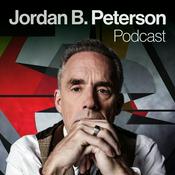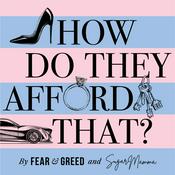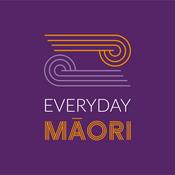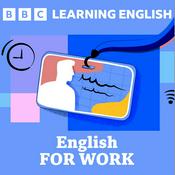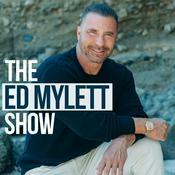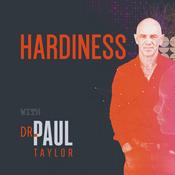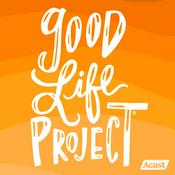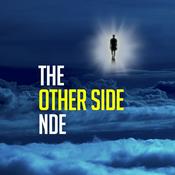58 episodes
- Our education system is in a code red emergency.
We are failing our students, parents and educators yet we are unwilling to have constructive debate on the root cause. Hot topics like the structured literacy versus balanced literacy debate results in sensationalist biased headlines that deepen the ideological divide.
According to New Zealand's Auditor General, the Ministry of Education does not know why we have worsening disparities in educational outcomes for our richest and poorest neighbourhoods.
When we send our children to state schools to be educated by teachers who trained in taxpayer-funded tertiary institutions, we should expect that the training received by teachers and the education provided in state schools are following the evidence in the science of learning.
But when you speak to parents, educators and students, something is going terribly wrong.
To talk more on where, how and why we have gotten education wrong, I bring on Dr Nina Hood, a secondary school teacher who founded The Education Hub, an organisation that creates learning opportunities for teachers that bridges the gap between scientific research and everyday practice.
Dr Nina is also the academic director of The Teacher's Institute, a new education program for new teachers that puts the science of learning and in-classroom practical experience at the heart of teacher training. #56 - Paul Moon ONZM - Colonisation, The Treaty & History: Learning From, and Making Sense of The Past
26/11/2024 | 2hWhoever wishes to foresee the future must consult the past; for human events ever resemble those of preceding times. This is a quote from Machiavelli about the importance of understanding our history.
Aotearoa New Zealand, like all nations, must grapple with its past if it intends to avoid repeating its mistakes. With the introduction of Act Party's Treaty Principles Bill, the discussion around Te Tiriti has come to a head. On one side of the argument, the current interpretation of te tiriti has gone too far, on the other, not far enough.
To understand this further, I wanted to learn more about New Zealand's history: how colonisation occurred, the context with which te tiriti and the treaty were signed, and the implication of what happened in the 1800s and how this affects people today.
So on this episode I bring you Professor Paul Moon, Officer of NZ Order of Merit. Paul is a historian and professor at Auckland University of Technology who has devoted his career to researching New Zealand History, Te Tiriti o Waitangi, and British Colonisation. He is an avid author and written many books on early NZ history and biographies of both British settlers and Maori rangatira.
I also speak to Paul about the recently developed NZ history curriculum as well as the state of our Universities and academia. Are we creating environments for freedom of thought, exploration and expression? Or has challenging the orthodoxy become a social faux-pas?- If you ask most people, a safe and just community is a key part of social cohesion.
People want safety to go about their business, certainty that there are consequences for bad actions and opportunities for both success and redemption.
But what does that look like?
A large topic of discussion is whether we are tough enough on crime. Are we doing enough to prevent crime and are we doing enough to mete out justice?
Rising social disadvantage, gang-related violent crime and intergenerational incarceration are complex issues that require deeper examination.
When recidivism is so high, can we say that prisons are working to keep us safer? Or are we asking prisons to do too many things?
On this episode I kōrero with Vaughan Winiata. Vaughan is a serial businessman, champion for Māori business and has spent the last several years working towards improving prisoner reintegration and gang member rehabilitation. Vaughan shares with us the reality of prison, the challenges inmates face on returning to society and why we even have prisons in the first place. - Nothing is certain but death and taxes.
Death is coming for all of us, but why are we so afraid of talking about it?
As a doctor, most of my job has been about saving people. Saving people from harm to their body or mind and alleviating suffering.
But what if some of our choices are causing more suffering? What if by sterilising and ignoring the process of death we now just see death as failure?
Medical care has come so far in the last century where far fewer people die in childhood and many are living well into their 90s.
But how we in Modern Western society approach death, dying and living has changed drastically with the growing trend of death denialism and a lack of opportunity for people to just talk about death. On this episode we bring on Treza Gallogly, a death doula. Doulas have been popularised as a support person and advocate for women in pregnancy helping to bring life into the world. Now there is a growing need for that support in dying.
As a death doula Treza walks with her clients who are making their last journey into death, helping them and their families navigate the next chapter.
But helping people through their dying months, weeks, or days is not just about death, it is about living. When we start becoming less uncomfortable with approaching death, this is the moment when we really start to live. - One of the biggest challenges facing us in the 21st century is significant demographic change.
We have an ageing population with people living much longer and with fewer children being born. This is resulting in a growing use of immigration to provide the economic activity to fund core public services like health, education and justice.
Meanwhile growing income inequality is contributing to worse rates of preventable illness as health funding is diverted away from public health interventions that actually keep people healthy.
It's time we take a much longer term view to the social and economic challenges our country will face. Much longer than the 3 year election cycle.
To talk about this further, I bring you the economist Shamubeel Eaqub
For New Zealand and our people to find success, we need to be realistic, but hopeful to get through tough times. Whether we like it or not, New Zealand will undergo significant change. And with that, we must be truthful and open about the risks associated with this change.
What is at stake here is social cohesion.
If we continue to become more divided, we risk losing the prosperity, freedom and progress that has been hard fought for by generations that came before us.
But, if we can find a sense of common ground, collective identity and a shared vision and set of values, maybe, just maybe, we will change that trajectory to a better future for all to thrive.
While you listen to this episode I want you to really ask yourself, what does it mean to be a New Zealander? Send us an email, DM or a voice note on our social media to let me know what you think.
More Education podcasts
Trending Education podcasts
About Revolving Door Syndrome
Revolving Door Syndrome is a podcast by Dr Nina Su. Each episode we kōrero about our health, education and justice systems and reflect on the challenges everyday New Zealanders face. Some systems and policies feel like revolving doors going round in circles without achieving meaningful change. We bring you engaging dialogue from people of different backgrounds in the hopes to find realistic solutions to systemic problems.
Podcast websiteListen to Revolving Door Syndrome, The Mel Robbins Podcast and many other podcasts from around the world with the radio.net app

Get the free radio.net app
- Stations and podcasts to bookmark
- Stream via Wi-Fi or Bluetooth
- Supports Carplay & Android Auto
- Many other app features
Get the free radio.net app
- Stations and podcasts to bookmark
- Stream via Wi-Fi or Bluetooth
- Supports Carplay & Android Auto
- Many other app features


Revolving Door Syndrome
Scan code,
download the app,
start listening.
download the app,
start listening.


